
To the hydration stations! How to help wild birds hydrate
Around the globe hot weather is more common than ever. Since 1884 the top ten warmest years on record have all occurred in the last two decades.
In the heat of summer wildlife can really suffer without access to regular supplies of fresh, clean water. For birds, with their small bodies and active daily lives, consistent hydration is even more vital. What’s more, the need extends far beyond the hottest days of summer.
Why do birds need water?
Birds don’t have sweat glands and therefore need less water than mammals. They do however, lose quite a bit through respiration, evaporation, on hot days, and in their droppings. Like any animal, birds will not survive without water - which they need for both drinking and bathing.
Drinking water is vital to help move spent nutrients from the body through the kidneys. However, equally important for bird health is access to water for bathing. They use this water both for cooling off in summer and keeping warm in winter.

It’s this winter use of water that comes as a surprise to many. However, by dipping into water birds remove dirt from their feathers, which makes it easier to preen. Preening is when birds carefully rearrange their feathers, adding oil from the preening gland as they do so. This waterproofs the feathers and traps layers of air between them to insulate for warmth.
Did you know that the white stuff in bird poop is actually pee? As a water-saving measure and to keep body weight down, birds excrete uric acid from the kidneys. Which explains the paste we see all over our windscreens.
Where do New Zealand birds get water from?
For many birds, much of their liquid comes from their food intake. Insects contain a lot of water so insectivorous birds will satisfy much of their water needs this way. Nectar is mostly liquid, so that’s great for the nectar-sippers such as tūī and bellbird. Birds that feed predominantly on seed (e.g finches, sparrows and yellowhammers) have a dry diet, so they need to drink more water.
Otherwise, birds drink from droplets of water on leaves, puddles or pools of water on the ground, and ponds and streams – usually about twice a day. In summer a lot of those smaller and more accessible sources of water dry up. In winter they can freeze over. That’s why putting out water in our gardens is so helpful for New Zealand birds.

To drink, most birds fill their beaks with water and tilt their heads back to let gravity move the water into their digestive tract.
How we can help
Maintaining a bird bath in both the heat of summer and the depths of winter will be helpful for New Zealand birds, both native and introduced. Some guidelines though:Keep it clean. Bird baths can quickly become coated in algae if not cleaned regularly. Leaves, insects, feathers, poop, twigs and other bits will accumulate in the water too and can carry harmful pathogens. Thoroughly clean your bird bath at least once a week, more if the customers are visiting regularly. People tend to be less likely to clean bird baths when they are large and unwieldy. If that’s you, try a small, hanging bird bath like the Splash ‘n Feed – it’s easy to remove and clean quickly.
Keep it high. Birds crowding at water sources can literally be low-hanging fruit for predators like cats and dogs. Put it up nice and high so the birds can bathe and drink safely.
Keep cover nearby. Birds will be cautious about approaching water sources that are out in the open. Locate bird baths near large trees or the side of a building if possible. The cover will also give them a spot to flee towards if they sense danger.
Keep it shady. A birdbath placed in the middle of a garden will attract sunlight and heat up quickly. In summer especially, birds will use a bath to cool down so try to place it under shade. Hanging it from a large tree is a good idea, or perhaps from a south-facing fenceline. You can also help birds out by providing a hydration station in your garden.
There are plenty of other ways to make a bird-friendly garden too.
Related Posts
A word in your ear: Our favourite nature podcasts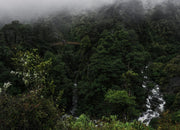
Informative, soothing, or a mixture of both, these nature podcasts are well worth a listen. Whether you’re looking to...
Great reads for nature lovers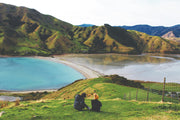
Summer may still be in full swing but, for those of us who have headed back indoors to that old party pooper ‘work’, ...
These bird lovin' social accounts are creating a flap!
Social media has made it super easy to connect with other bird lovers around the country and beyond. If you’re lookin...
NZBirdAtlas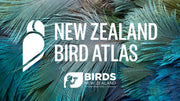
While bird watching may have a reputation as a quiet, solo activity, it is possible for your little bird swooning hab...
How to compost packaging from our Wild Bird range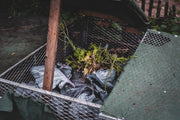
Topflite aims to be part of the consumer packaging solution; not the problem. That’s why we’ve set the ambitious goal...
To the hydration stations! How to help wild birds hydrate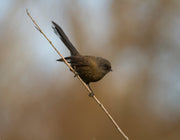
Around the globe hot weather is more common than ever. Since 1884 the top ten warmest years on record have all occurr...
Lucky Duck makes happy ducks
We’re seeing evidence that there’s a lot less bread being fed to ducks both in backyards and local parks and gardens ...
How to clean a bird feeder (and why it is so very important that you do)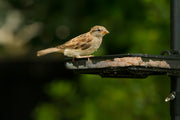
Let’s face it – birds are sloppy eaters. All that flapping, hopping and hanging at the feeder means a lot of contact ...
Easy, tiger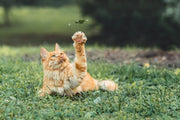
Five ways to keep kitty away from backyard nests Keeping feline predators out of your garden shouldn’t be like ‘herd...
Seeds of thought - How wild birds grow forests
We’re taught from an early age that birds need trees to live in. But so too do trees often need birds to survive… ...
Returning to the nest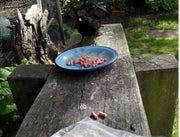
Welcoming family home for Christmas. We often talk about what it means to welcome wild birds into the family. What ...
Discomfort food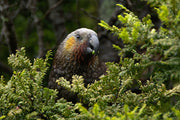
Killing with kindness. Tragic news of a kākā chick’s death in Auckland highlights the need for wider education on wha...
How to use a bird feeder correctly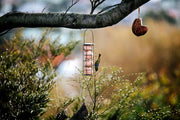
Feeding wild birds may seem easy at first glance. But in fact it requires more than just putting out bird seed. By us...
Spring is in the air...
So what do your local birds need? You’ll be noticing a lot more action in the garden with the arrival of warmer weath...
Wanted in winter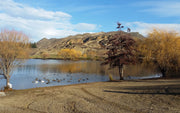
Provide an extra boost for wild birds when food is scarce. We all know that with low temperatures come cravings for h...
















